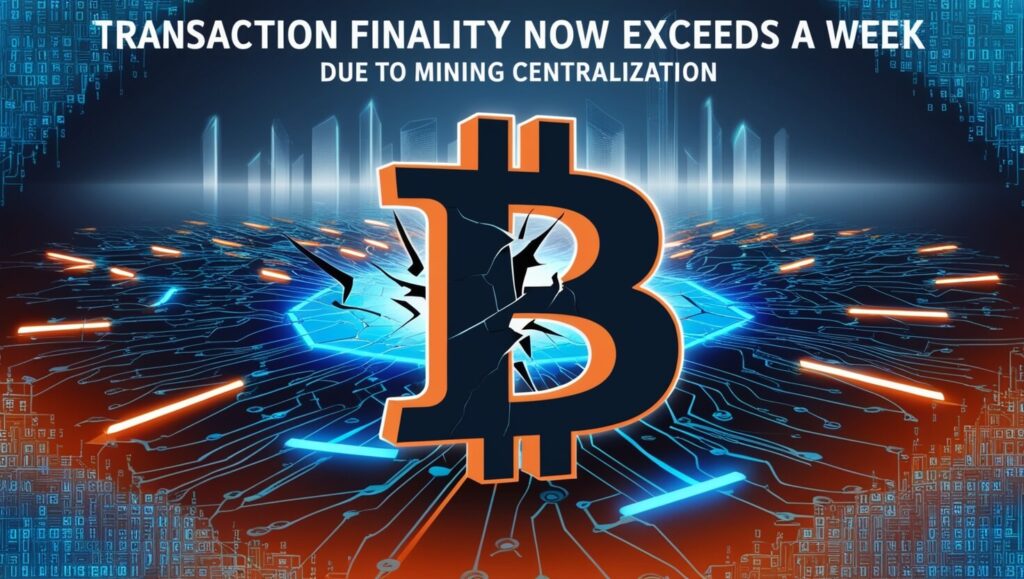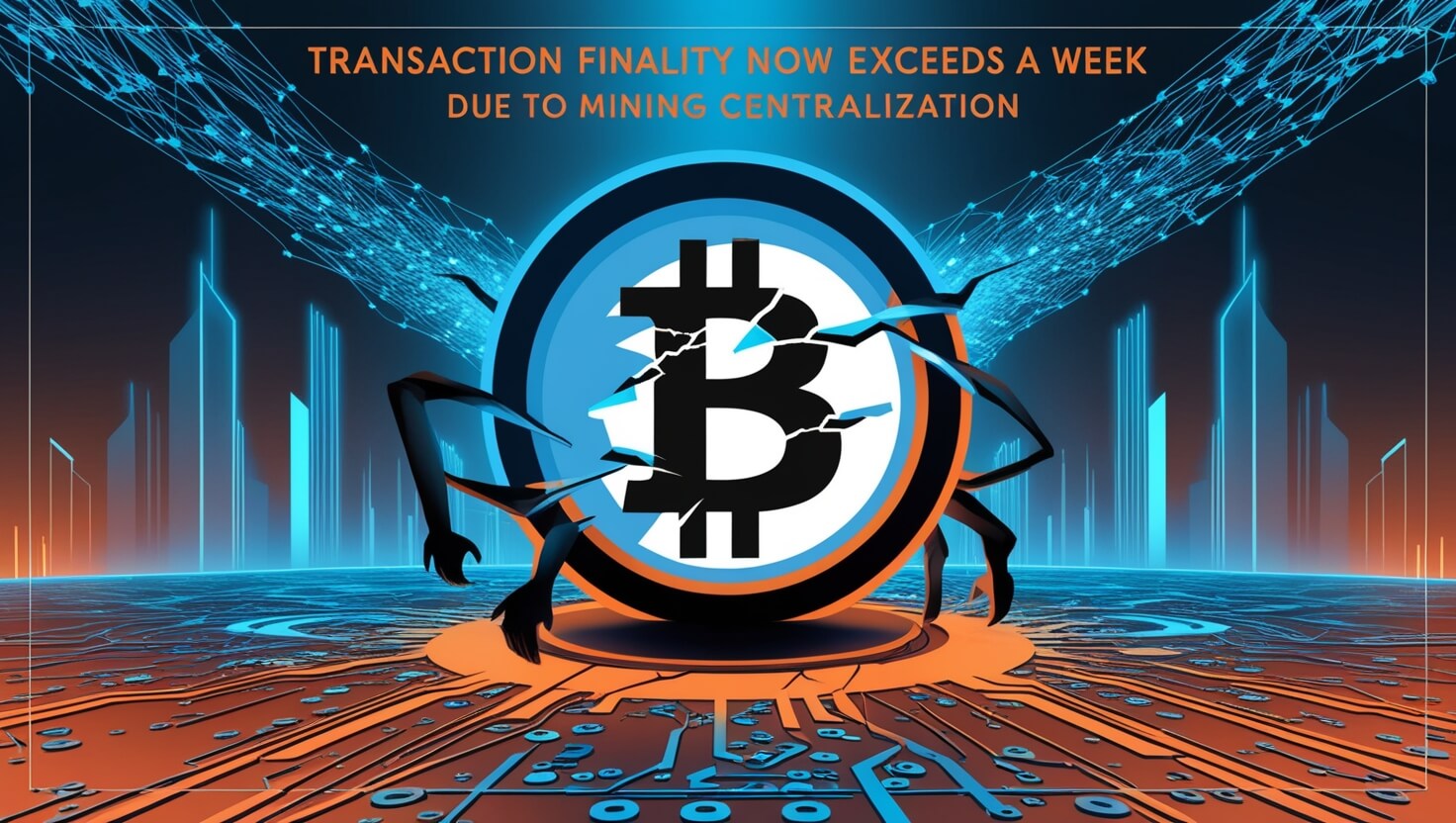Bitcoin Transactions Under Review Following Centralization in Mining Activities
Issues have been raised by Bitcoin Core developer Luke Dashjr regarding the finality of Bitcoin transactions, specifically claiming that the six-block confirmation rule is accepted too widely.
In his assessment, Dashjr proposes that there is now a weeks-long wait to finalize transactions and have them secured through the confirmation process. Previously, a transaction was considered finalized or irreversible after six blocks had been confirmed. However, he argues that this is no longer true due to increased centralization in mining pools.
Why Finalizing Transactions on Bitcoin Takes Longer
In his February 8 post, Dashjr described an issue when he tried to adjust the six confirmational block requirement on Bitcoin Knots – a Bitcoin Core alternative. When Antpool has such a dominating share, it’s almost impossible to achieve 800 blocks. Thus based on my calculations, reaching 95% in economic security would take in excess of 800 blocks and approximately 5.5 days.
Approximately 16.67% of Bitcoin’s hash power is controlled by Antpool, making it the second largest behind Foundry USA, which has about 33.12%. F2Pool, MARA pool, and SecPool follow with 8.87%, 6.06%, and 5.19%, respectively.

Nonetheless, Dashjr questions these estimates by claiming that some pools like Braiins and maybe even ViaBTC act as Antpool’s proxies, thus increasing its actual dominance far beyond what is represented here. He further cautions that a large number of miners contribute, without their knowledge, to the instability of the network by joining extremely centralized pools.
Emerging Issues in the Industry
That concern was echoed by experts who believe that the concentration of a few dominant mining pools will render Bitcoin susceptible to censorship and even a 51 percent attack, which is possible at that rate.
Bob Burnett, Chief Executive Officer at Barefoot Mining, modified the concern by suggesting that once a single entity controls a substantial portion of Bitcoin’s network, that entity can alter the transactions by reordering blocks on the blockchain.
“It at the very least diminishes Bitcoin’s resistance to censorship, and for true immutable changes to be made, far more time is needed,” he added.
As a response to these concerns, Burnett called on retail investors to exercise that control and help mitigate that risk by demanding more decentralization through the promotion of mining operations with diverse ownerships.
He argued that publicly listed companies should allocate their hashing power to small pools so that no single pool can surpass the 15% mark of the total network. If firms refuse to comply with the demand, he argued that investors ought to sell their shares and openly challenge the non-compliant firms if the intention is to protect the decentralization of Bitcoin.
Regardless, not all stakeholders by dashjr’s assessment, as they remain vexed by the reasoning. For instance, Daniel Roberts – co founder of Iris Energy Ltd – dismissed these worries, suggesting that Bitcoin is designed to balance itself over time.










